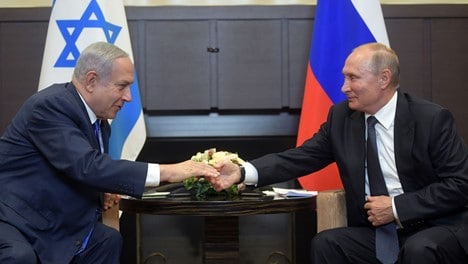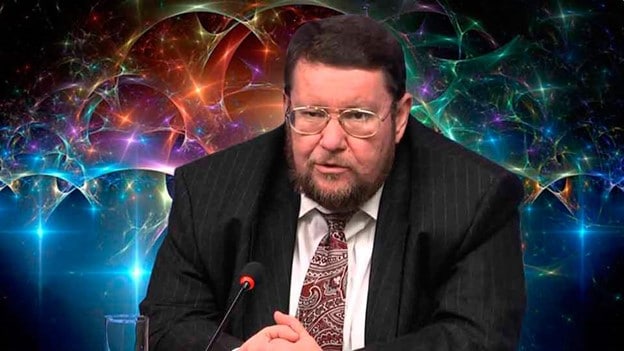On July 28, 2022, the Basmanny District Court in Moscow is scheduled to begin hearings on whether to liquidate the activities of the Jewish Agency in Russia. The charge ostensibly is the collection of information on Russian citizens a job that the organization has performed for years in line with assessing applications for immigration to Israel. Both in Israel and Russia, the explanation by Presidential Press Secretary Dmitry Peskov that this was unrelated to stemming the brain drain from Russia but purely a matter of compliance with Russian law[1] was not taken too seriously, as ostensibly there was no reason why the Jewish Agency had run afoul of the law precisely now.
There were three main explanations for the Russian action that are not mutually exclusive: The first is that the problems of the Jewish Agency were collateral damage of the general crackdown against foreign organizations and "foreign agents" since the start of Russia's war in Ukraine. The second is that the Israeli government has angered Russia by tilting to Ukraine and this tilt is particularly connected with Israel's caretaker Prime Minister Yair Lapid. Indeed, some of Russia's leading foreign policy analysts have expressed nostalgia for former Prime Minister Binyamin Netanyahu and hope that his victory in the November 1, 2022 Israeli parliamentary elections will restore relations to even keel. The third explanation –Peskov's denial aside– asserts that Moscow is indeed apprehensive of a brain drain given the disproportionate number of Jewish scientists and engineers and wants to staunch this hemorrhaging of its human capital.
MEMRI's report on the Jewish Agency crisis in Russia follows below:

Entrance to the Moscow branch of the Jewish Agency
Russia Is Incensed With Lapid, Pines For Netanyahu's Return
Political scientist professor and columnist Gevorg Mirzayan claimed that the threat to close down the Jewish Agency in Russia represented a riposte to Prime Minister Yair Lapid on a most sensitive issue for Israel, its constant need for new immigrants to help defend the country. While Israel boasted the highest demographic growth in the developed world a good chunk of that growth was represented by the Ultra-Orthodox, who "don’t serve in the army or pay taxes, which means that they, as well as their children bring little practical benefit to Israel." Then there were the Arabs, many of whom "have no particular loyalty to the Jewish state." Jewish immigration therefore represented the most cost-efficient solution for Israel: "Finally, the little newly born Israelis still need to be raised, educated and trained. It’s much easier and quicker to import already 'ready-made' Jews, educated, adults, who are ready to work for Israel.
"As a result, today repatriates account for more than 15% of Israel’s population. Meanwhile, about 900,000 of the Jews in Israel have their origins in Russia and the former Soviet Union (and their number is being increased by Russian citizens). If during the entire year 2021 almost seven thousand Russians repatriated to Israel, then from January to mid-July of 2022 - 15 thousand."
This outflow was hurting Russia: "Allegedly, the Russian state is unhappy with the purposeful work of Sokhnut to encourage the departure from Russia of valuable specialists, scientists and other important and necessary personnel for Israel (well such specialists are important for Russia too)."
Israel was trying to negotiate a solution but a major impediment was the presence of Lapid at the helm of the Israeli government: "However, there is reason to believe that it will be extremely difficult for Lapid to achieve the goal of saving the Jewish Agency. And not just due to the fact that the Russo-Israeli relations have become seriously complicated in recent months (because Tel Aviv is refusing to condemn the Ukrainian Nazis, and because of the intensification of Israeli strikes on Syria). The thing is that Moscow is extremely dissatisfied with Yair Lapid’s rhetoric. A few months ago (while still serving at the office of Minister of Foreign Affairs) Mr. Lapid condemned the Russian military operation in Ukraine."
Mirzayan believed that Israel could use the appeals process to save the Jewish Agency in Russia by installing a new team at the top and cited another foreign policy heavyweight Andrei Kortunov the director of the Russian International Affairs Council: "In case Yair Lapid remains prime minister of Israel, Russo-Israeli relations will certainly not improve. The situation could be different, provided Binyamin Netanyahu returns to the prime minister’s office. Netanyahu and Vladimir Putin have long enjoyed a relationship of trust, and some positive developments may be expected." [2]
Another top analyst Fyodor Lukyanov, editor-in-chief of Russia in Global Affairs, feared a further deterioration of relations between Russia and Israel unless Netanyahu returned to office, something that could not be guaranteed:
"Although so far Tel Aviv has not participated in this campaign, despite the constant pressure from Washington, now, apparently, we will see Israel impose the same sanctions that the US and EU have already imposed." In such a case, Russia would retaliate for example by turning a blind eye to Hizbullah actions in Syria. Furthermore, "Israel will be included in the category of unfriendly countries. And this implies not only diplomatic restrictions, but also some financial aspects."
The future hinged on the outcome of the Israeli elections: "If Netanyahu returns to power, the situation could improve. This is owing to his [Netanyahu's] relationship with Vladimir Putin. But the problem is that there are yet no guarantees for the return of the former prime minister. Yes, and this is difficult to predict due to the volatility of Israeli politics."[3]

Netanyahu with Putin (Source: Gazeta.ru)
Middle East expert Yevgeny Satanovsky, who is both Jewish and an ardent supporter of the Putin regime joined the attack on the pro-American uneducated Lapid, "who doesn’t even have a high school diploma, but as a populist he slips into the Israeli political arena" Satanovsky claims that Russian-Israeli relations have developed normally, and their potential rupture would not be beneficial to Russia but would please the United States that "is wildly jealous that Israel and Russia have normal relations" and is trying to envenom relations between the countries. For Satanovsky, a possible solution would be to dispense with the Jewish agency that is superfluous to relations between the two states and carry on ties between the foreign ministries.[4]
SUPPORT OUR WORK


Yevgeny Satanovsky (Source: Apral.ru)
The Jewish Agency Is A Victim Of The Current Russian Siege Mentality
Another major explanation was that the Jewish Agency's troubles in Russia were a byproduct of the war in Ukraine and its repercussions and it was perhaps naïve to expect that the Jewish Agency could escape the fate of other foreign NGOs. In an article written before the Jewish Agency issue heated up and unrelated to the Jewish Agency, columnist Irina Alksnis wrote how the concept of a world without borders had become bankrupt, and the state had to guard against the soft power of other states and attempts to subvert its citizens: "In this sense, the tightening of norms, concerning national security Russia is simply another formal confirmation of an almost self-evident reality: the project of a beautiful globalized world without borders is closing down due to insolvency and bankruptcy. A geopolitical storm is brewing over the planet. Mankind is returning to the traditional system of political and geopolitical structure, where the reference point and the main subject are the states.
"Citizens of the world and 'digital nomads' have the right to continue living as they wish, but they must keep in mind their obligations and responsibilities towards the state, which citizenship they have. However, this advantage risks causing problems for them in the near future provided they have more than one citizenship."[5]
The former head of the Jewish Agency Natan Sharansky, a prisoner of conscience in the Soviet era claimed that the harassment of the Jewish Agency had started back in 2014 in the first installment of Russia's war with Ukraine.
Sharansky recalled that all other foreign organizations operating in Russia and collecting information about Russian citizens have either been closed down by the Russian authorities over the years or have voluntarily decided to leave the country.[6]
Political scientist Alexei Makarkin, head of the Center for Political Technologies claims that the Jewish Agency was subject to the vagaries of the Russian political climate: "The break with the West has resulted in the fact that they consider in Moscow any collection of information about Russians, which then goes abroad to be unacceptable. This also applies to stimulating the emigration of personnel valuable to the economy. This approach does not have a purely Israeli specificity and applies to everyone. The situation of a "besieged fortress " leads to the restoration of the Soviet perception of threats - arguments related to democratic freedoms and human rights no longer work. If we recall the history, then the future head of the Jewish Agency Natan (then Anatoly) Sharansky was convicted in the USSR precisely for collecting information about refuseniks who were not allowed to emigrate to Israel. This was considered criminal due to the fact that they once worked in the defense industries (and in the USSR they included a huge part of the economy), so Sharansky was convicted under Article 64 of the Criminal Code (“Treason to the Motherland”). In post-Soviet Russia, Sharansky, who by that time had become an Israeli politician and repeatedly held ministerial posts, was no longer perceived as a 'traitor' - this happened in the context of dialogue with the West and rapprochement with Israel. Now Soviet practices are not fully restored (in the USSR, for example, even Hebrew study circles were banned), but Soviet psychology is returning."[7]

Alexei Makarkin (Source: Mk.ru)
Mikhail Gurevich a columnist for Kommersant compared Israel's alarmed reaction to the impending closure of the Moscow offices of the Jewish Agency with Moscow's blasé reaction to EU restrictions on Western sanctions on Russian organizations such as the Federal Agency for Work with Compatriots Abroad that work with the Russian diaspora and promote the Russian language. The comparison was not flattering to Russia
If previously Russian Foreign Ministry spokesperson Maria Zakharova repeatedly complained about Russophobia and the oppression of Russian-speaking residents of Western Europe, now the ministry does not even pick up a phone to Brussel to reach a mutual agreement that would spare humanitarian organizations.[8]
Andrei Kolesnikov is a senior fellow and Chair of the Russian Domestic Politics and Political Institutions Program at the Carnegie Moscow Center, claims that the decision of the Russian authorities to liquidate the Jewish Agency presages a sharp deterioration in Russia's relations, and more ominously signals Russian Jews that they have to leave while they can.
"The [Justice] ministry believes that the Jewish Agency violated Russian law. What this violation consists of, the Jewish agency, which has helped since 1989 in the repatriation of Soviet and Russian Jews to Israel, may not know. Just as the representative offices of 15 foreign organizations — from the Adenauer Foundation to the Carnegie Moscow Center — did not recognize them when the same Ministry of Justice industrially liquidated them in April 2022."
"The legal side can be ignored: there is no doubt that the Jewish Agency”, working in the country for three decades, was well versed in Russian laws. But today's Russian law enforcement knows no legal boundaries - the law is interpreted solely in favor of the state, in favor of prohibitions and persecution on shaky grounds."
The Russian authorities are interested in wiping out all remnant of organized civil society in Russia. The recognition of people and organizations as foreign agents is a throwback to Stalin era's persecution of "rootless cosmopolitans". The campaign was Stalin's irate response to the tumultuous reception accorded by Soviet Jewry to Israel's first ambassador to Moscow Golda Meir.
"With the liquidation of the Jewish Agency- and there is little doubt that the Basmanny Court will agree with the Ministry of Justice - the struggle against modern 'cosmopolitans' and, one might say, 'Zionists' continues with redoubled energy. This is a very bad sign...
"If the Russian political regime, represented by its authorized body, sends a more than hostile message to the organization responsible for repatriation, this means an accelerated movement towards conflict relations with Israel. This is in contrast with the previous political policy."
Russia is shooting itself in the foot, but as Russia failed to grasp the true situation in Ukraine, its failure to evaluate the situation in Israel should come as no surprise.
"Having quarreled with the entire advanced world, it remains only to quarrel with Israel. What's the output? New travel bans?... Will Israel have to repeat the experience of Operation Flying Carpet, when the Israeli Air Force rescued Yemenite Jews in 1949-1950, or Operation Shlomo in 1991 to rescue Ethiopian Jews? Such an assumption looks absurd, but do not we now live in a world where anything is possible."
Russian Jews should get out before it is too late. "It turns out that the liquidation of the Jewish Agency is a signal to Russian Jews: now they definitely must leave. This is not an issue for the Jewish Agency, but for the Russian authorities, who are not overly concerned with the preservation of human capital."[9]




